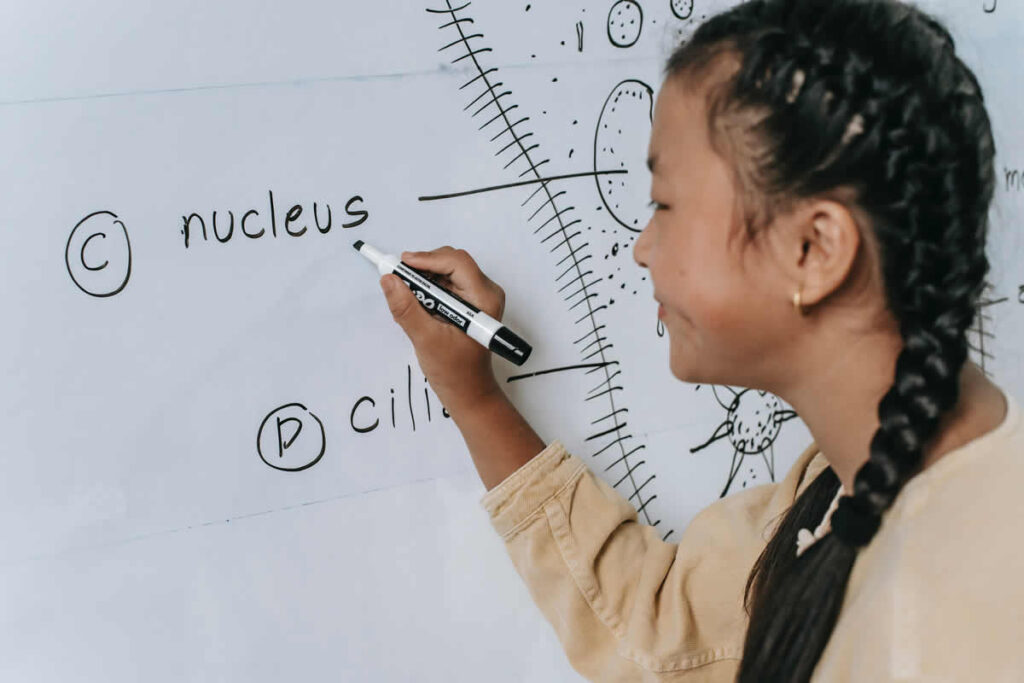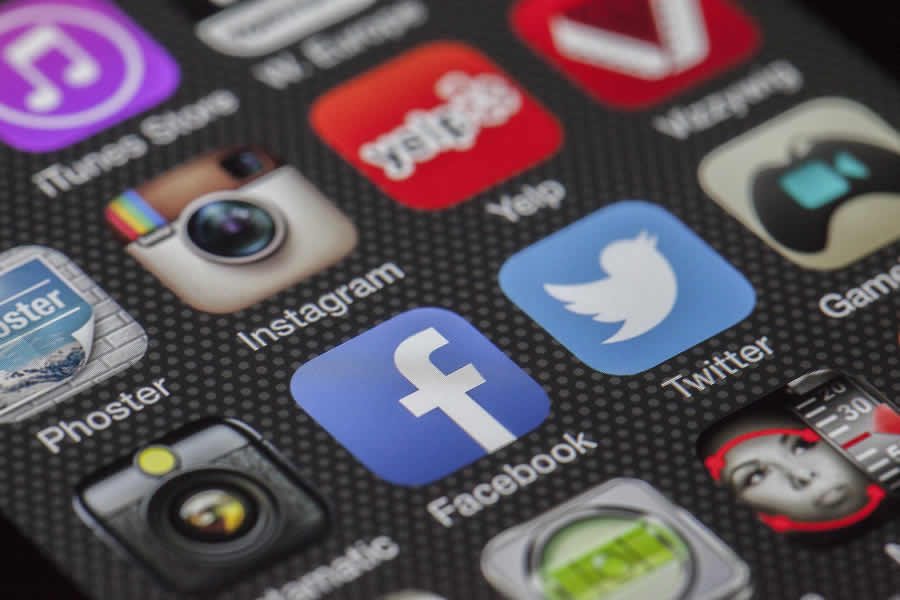In today’s fast-paced digital age, social media has become an integral part of our daily lives, revolutionizing the way we connect, communicate, and share information. Beyond its role in personal interactions, social media has made a profound impact on education, reshaping the dynamics of learning and teaching. This blog post delves into the intricate relationship between social media and education, exploring the transformative effects and potential challenges that arise as these two realms intersect.
As the boundaries between the physical and virtual worlds blur, educators and students alike are navigating the ever-expanding landscape of social media. From collaborative learning platforms to real-time information sharing, the educational sphere is experiencing a paradigm shift. This post unravels the multifaceted ways in which social media influences educational environments, shedding light on the positive contributions and addressing the concerns that arise when integrating these powerful digital tools into traditional learning methodologies.
It is essential to comprehend the role of social media in shaping the future of education. From fostering global connections to providing instant access to a vast pool of knowledge, social media platforms offer unprecedented opportunities for both students and educators. However, this digital evolution also presents challenges such as information overload and the need for digital literacy skills. Join us in exploring the nuanced impact of social media on education, as we navigate the delicate balance between its benefits and potential pitfalls.
Table of Contents
Introduction
Overview of Social Media’s Pervasive Influence
The pervasive influence of social media on contemporary society is undeniable, fundamentally altering the way individuals communicate, share information, and engage with the world around them. Social media, encompassing platforms such as Facebook, Twitter, Instagram, and LinkedIn, has evolved beyond mere tools for personal connection to become powerful engines driving cultural, political, and educational shifts.
Its impact extends across diverse sectors, shaping public discourse, influencing consumer behavior, and redefining the dynamics of interpersonal relationships. This overview delves into the omnipresence of social media, highlighting its transformative role in connecting people on a global scale and laying the groundwork for an in-depth exploration of its influence on education. As we navigate the multifaceted dimensions of this digital phenomenon, its effects on education emerge as a focal point, underscoring the need to scrutinize the intricate interplay between social media and the educational landscape.
The Intersection of Social Media and Education

The intersection of social media and education marks a pivotal juncture in the evolution of learning paradigms, where traditional educational approaches intersect with the dynamic realm of digital connectivity. Social media platforms have become integral tools in the educational landscape, offering innovative avenues for collaboration, knowledge sharing, and interactive learning experiences. Students and educators now navigate a space where the boundaries between formal education and informal online engagement blur, creating a symbiotic relationship that shapes the way knowledge is acquired and disseminated.
This convergence introduces both opportunities and challenges, as educators harness the potential of social media to enhance student engagement and foster a sense of community, while also addressing concerns related to privacy, digital distractions, and the need for critical digital literacy skills. Exploring this intersection unveils a nuanced landscape where social media plays a central role in shaping the future of education, influencing the dynamics of the classroom and beyond.
Purpose and Scope of the Blog Post
The purpose of this blog post is to provide a comprehensive exploration of the intricate relationship between social media and education, shedding light on the transformative impact and challenges within this evolving landscape. By delving into the multifaceted dimensions of social media’s influence on education, the aim is to offer readers a nuanced understanding of how these digital platforms shape learning environments, pedagogical approaches, and student experiences. The scope of this blog post encompasses an examination of the positive contributions of social media in education, including enhanced collaboration and global learning opportunities, while also addressing challenges such as information overload and digital distractions.
Through thoughtful analysis and case studies, we aim to equip readers with insights into effective strategies for integrating social media into educational settings, emphasizing the importance of balancing technological innovation with the preservation of educational integrity. This blog post serves as a guide for educators, students, and stakeholders navigating the complex landscape where social media and education converge.
The Positive Impact of Social Media on Education
Enhanced Collaboration and Communication
Enhanced collaboration and communication stand as hallmark benefits of the intersection between social media and education. Social media platforms provide a dynamic and accessible space for students and educators to engage in real-time discussions, share resources, and collaborate on projects, transcending the limitations of traditional classroom settings. Through features like discussion forums, group chats, and collaborative documents, social media fosters an inclusive learning environment that encourages active participation and the exchange of diverse perspectives.
This enhanced connectivity not only breaks down geographical barriers but also cultivates a sense of community among learners. As students and educators leverage the power of social media for collaborative endeavors, they embrace a new era of educational interaction that extends beyond the physical confines of the classroom, enriching the educational experience and preparing individuals for a digitally connected future.
Global Learning Opportunities
Social media platforms have become catalysts for global learning opportunities, transcending geographical boundaries and connecting learners across the world. The advent of social media has democratized access to knowledge, enabling students and educators to engage in cross-cultural exchanges, share diverse perspectives, and collaborate on an international scale. Platforms like Twitter, Facebook, and LinkedIn serve as virtual classrooms where individuals can participate in global conversations, access a wealth of information, and build networks with peers and experts from different corners of the globe.
This globalized learning environment not only broadens educational horizons but also prepares students for an interconnected world, fostering cultural understanding and promoting a more inclusive approach to learning. Social media’s role in facilitating global learning opportunities underscores its transformative impact on education, creating a space where the exchange of ideas transcends borders and opens up new avenues for collaborative, cross-cultural learning experiences.
Real-Time Information Sharing
Real-time information sharing has emerged as a cornerstone of the symbiotic relationship between social media and education. Social media platforms serve as dynamic channels for the instantaneous dissemination of information, breaking down traditional barriers to access and ensuring that the latest updates and educational resources are readily available to a global audience. Through features like live streaming, instant messaging, and real-time updates, social media transforms the learning experience by providing educators and students with timely and relevant content.
This immediacy not only keeps stakeholders informed about emerging trends and developments but also fosters a dynamic and responsive educational environment. Social media’s role in facilitating real-time information sharing stands as a testament to its transformative power in accelerating the pace of knowledge dissemination and fostering a culture of continuous learning within the educational landscape.

Empowering Student Engagement
Social media plays a pivotal role in empowering student engagement, offering a dynamic platform for interactive learning experiences that extend beyond the confines of the traditional classroom. Through social media, students can actively participate in discussions, share their insights, and collaborate on projects, fostering a sense of ownership in their educational journey. Platforms like Instagram, TikTok, and YouTube allow students to showcase their creativity and unique perspectives, promoting a more personalized and student-centric approach to learning.
Social media also facilitates the creation of online communities and interest groups, where students can connect with like-minded peers, exchange ideas, and collaborate on shared interests. By harnessing the power of social media, educators can cultivate a vibrant learning environment that caters to diverse learning styles and encourages students to take an active role in shaping their educational experiences. In this way, social media becomes a tool for not only disseminating information but also for empowering students to become active and engaged participants in their learning journey.
Challenges and Concerns in the Integration
Information Overload
The advent of social media has ushered in an era of unparalleled information access, but it has also given rise to the challenge of information overload in educational contexts. As students and educators navigate a sea of digital content on platforms like Facebook, Twitter, and LinkedIn, the sheer volume of information available can become overwhelming. Social media’s continuous stream of updates, posts, and multimedia content poses a risk of diverting attention and diluting the learning experience. Information overload can impede effective decision-making, hinder critical thinking, and contribute to a sense of cognitive overwhelm.
In the context of education, it is crucial to address this challenge by promoting digital literacy skills, encouraging information discernment, and implementing strategies that help individuals navigate the vast landscape of social media while extracting meaningful and relevant content for their educational pursuits. The balance between harnessing the benefits of social media and managing information overload is central to optimizing its role in the educational landscape.
Digital Distractions in the Classroom
The prevalence of social media presents a dual-edged challenge in educational settings, notably in the form of digital distractions within the classroom. As students bring their smartphones, tablets, and laptops into the learning environment, the temptation to engage with social media platforms like Instagram, Snapchat, and Twitter can divert attention from the educational content at hand. The constant notifications, updates, and the allure of social connectivity can disrupt the focus needed for effective learning. Educators face the task of striking a delicate balance, acknowledging the potential benefits of technology while also addressing the distractions it may introduce.
Managing digital distractions in the classroom requires a multifaceted approach, incorporating strategies for promoting active engagement, establishing clear guidelines for device use, and fostering awareness among students about the impact of social media on their learning experience. Effectively navigating this challenge ensures that social media’s potential as an educational tool is harnessed while minimizing its potential to detract from the educational goals within the classroom setting.
Privacy and Security Issues
The integration of social media in educational settings brings to the forefront a pressing concern: privacy and security issues. Social media platforms, designed for sharing and connectivity, inherently involve the collection and dissemination of personal information. In an educational context, this raises critical questions about the safeguarding of student data, confidentiality, and the potential for privacy breaches. Students and educators alike may unwittingly expose sensitive information on social media, making it imperative to address these privacy concerns proactively.
Educational institutions must establish robust policies and guidelines to ensure responsible use of social media, emphasizing the importance of protecting individual privacy. Moreover, fostering digital literacy and awareness among students becomes pivotal in empowering them to navigate social media platforms securely. As social media continues to play a significant role in education, a thoughtful and comprehensive approach to privacy and security issues is essential to mitigate risks and ensure a safe online learning environment for all stakeholders.

Addressing Digital Literacy Gaps
Addressing digital literacy gaps is paramount in navigating the complex interplay between education and social media. As these platforms become integral to the learning experience, it is crucial to equip students and educators with the necessary skills to critically evaluate, interpret, and contribute to the digital landscape. Digital literacy goes beyond basic technological proficiency; it involves understanding the ethical implications, evaluating the reliability of online information, and cultivating a responsible online presence. In the realm of social media, where information is abundant and diverse, addressing digital literacy gaps becomes even more pressing. Educational institutions must implement comprehensive digital literacy programs that encompass social media etiquette, online safety, and the ability to discern credible sources from misinformation. By bridging these literacy gaps, students and educators can harness the educational potential of social media while navigating its complexities with a heightened sense of responsibility and discernment.
Case Studies and Success Stories
Use of Social Media in Educational Settings
The use of social media in educational settings has evolved into a transformative force, reshaping traditional paradigms of teaching and learning. From interactive learning platforms to collaborative tools, social media has become a dynamic extension of the classroom, offering a plethora of opportunities for engagement and knowledge dissemination. Educators leverage platforms such as Facebook Groups, Twitter, and collaborative document sharing to create virtual learning communities, fostering continuous communication and resource sharing among students. Social media also serves as a platform for real-time feedback, enabling immediate interaction between teachers and students.
However, the effective use of social media in education requires a nuanced approach, considering privacy concerns, digital literacy, and the potential for distractions. Striking a balance between harnessing the benefits of social media and mitigating its challenges is key to maximizing its impact in educational settings. As we navigate this digital landscape, understanding the purposeful integration of social media in education is crucial for harnessing its full potential in shaping the future of learning.
Innovations in Teaching and Learning
Innovations in teaching and learning have been propelled to new heights with the integration of social media into educational practices. Social media platforms have catalyzed a shift from traditional, one-way teaching methods to more interactive and collaborative approaches. Educators are leveraging these platforms to create engaging learning experiences, incorporating multimedia elements, interactive discussions, and real-time feedback.
Tools like blogs, podcasts, and online forums enable a diverse range of teaching strategies, accommodating various learning styles. Additionally, social media facilitates personalized learning, allowing students to explore topics at their own pace and share insights with a global audience. This innovation extends beyond the physical classroom, breaking down geographical barriers and fostering a sense of connectedness among learners. However, as these innovations unfold, it is essential to continually assess their impact, ensuring that the integration of social media aligns with educational objectives and enhances the overall quality of teaching and learning experiences.
Positive Outcomes and Benefits
The integration of social media into educational practices has yielded a myriad of positive outcomes and benefits, revolutionizing the landscape of teaching and learning. Social media serves as a dynamic platform for collaborative engagement, breaking down geographical barriers and fostering global communities of learners. Educators harness these platforms to cultivate interactive learning experiences, promoting student participation and knowledge-sharing in real-time. The accessibility and immediacy of information on social media also empower students to stay informed about current events and emerging trends.
Additionally, social media facilitates the development of essential digital communication and collaboration skills, crucial for success in the modern, interconnected world. As a result, the positive outcomes extend beyond the academic realm, preparing students for the challenges and opportunities they will encounter in their future endeavors. The benefits of social media in education underscore its potential as a transformative tool, shaping a generation of learners who are not only academically proficient but also digitally fluent and globally connected.
Strategies for Effective Integration
Developing Digital Literacy Skills
Developing digital literacy skills has become an imperative aspect of education, especially in the context of the pervasive influence of social media. In an era where information flows abundantly through various online platforms, cultivating digital literacy is crucial for students and educators alike. Digital literacy encompasses the ability to critically evaluate information, navigate online spaces responsibly, and discern credible sources from misinformation. Social media platforms, being hubs of information and communication, require users to develop a heightened awareness of digital literacy to navigate the complexities of these digital landscapes.
Educational institutions are increasingly incorporating digital literacy education into their curricula, emphasizing the responsible use of social media, understanding online privacy, and fostering a discerning approach to information consumption. As students engage with social media for both educational and personal purposes, the development of robust digital literacy skills becomes paramount, empowering individuals to navigate the digital realm with confidence, ethics, and a keen sense of information discernment.
Establishing Social Media Guidelines in Education
Establishing social media guidelines in education is essential for creating a safe and productive digital learning environment. With the increasing integration of social media into educational practices, institutions recognize the need to provide clear frameworks that guide the responsible use of these platforms. Social media guidelines delineate acceptable behaviors, privacy considerations, and the boundaries between personal and educational use. These guidelines serve to protect the well-being of students and educators while fostering a positive online culture.
Emphasizing the importance of digital etiquette, responsible content sharing, and the protection of sensitive information, social media guidelines contribute to a more secure and respectful online educational community. Furthermore, they provide a roadmap for navigating the potential pitfalls associated with social media, ensuring that its integration aligns with educational goals and values. As educational institutions embrace the advantages of social media, the establishment of comprehensive guidelines becomes a fundamental step in maximizing the benefits while minimizing risks in the evolving landscape of digital education.
Balancing Traditional and Digital Teaching Methods
Achieving a harmonious balance between traditional and digital teaching methods is a key consideration in modern education, especially with the increasing influence of social media. While traditional teaching methods provide a solid foundation, the integration of digital tools, including social media platforms, offers an avenue for dynamic and interactive learning experiences. Educators must strike a thoughtful equilibrium, leveraging the strengths of traditional methods such as lectures and textbooks, while incorporating digital tools to enhance engagement, collaboration, and information access.
Social media, as a powerful digital resource, can facilitate real-time communication, collaborative projects, and global connections, enriching the educational experience. However, finding the right balance requires thoughtful planning, ongoing evaluation, and a commitment to ensuring that the integration of social media aligns seamlessly with pedagogical objectives. By navigating this delicate equilibrium, educators can harness the advantages of both traditional and digital teaching methods, creating a holistic and adaptive learning environment that prepares students for success in the ever-evolving landscape of education and technology.
Future Trends and Emerging Technologies
Evolving Role of Social Media in Education
The evolving role of social media in education signifies a transformative shift in how information is disseminated, collaboration is fostered, and learning is experienced. From serving as communication platforms to becoming integral components of digital classrooms, social media platforms continuously reshape the educational landscape. In recent years, educators have leveraged these platforms to enhance engagement, encourage peer collaboration, and provide real-time updates on educational content.
Moreover, social media plays a crucial role in promoting global connectivity and cultural exchange, enriching the learning experience beyond traditional boundaries. As the educational community navigates this evolution, it is essential to remain attuned to emerging trends, adapt to the changing needs of learners, and harness the full potential of social media in molding a more interconnected, collaborative, and digitally literate generation of students.
Anticipated Innovations and Developments
Anticipated innovations and developments in the realm of social media are poised to further revolutionize education, introducing transformative possibilities for both students and educators. As technology continues to advance, social media platforms are expected to evolve with features specifically tailored to enhance the learning experience. The integration of augmented reality (AR) and virtual reality (VR) into social media could create immersive educational environments, allowing students to explore subjects in unprecedented ways.
Additionally, predictive analytics and artificial intelligence (AI) may play a pivotal role in personalized learning experiences, tailoring content to individual student needs. The future holds the promise of even more sophisticated collaboration tools, expanded global learning networks, and advancements that streamline information dissemination. As educational institutions and practitioners prepare for these anticipated innovations, a proactive approach to digital literacy and responsible social media use will be crucial in maximizing the benefits of these developments while addressing potential challenges.
Potential Impact on the Educational Landscape
The potential impact of social media on the educational landscape is vast and far-reaching, signaling a paradigm shift in the way knowledge is acquired, shared, and disseminated. As social media continues to evolve, its integration into education holds the promise of fostering more collaborative, engaging, and globally connected learning environments. With the potential for real-time communication, interactive content creation, and expansive networking, social media has the capacity to break down geographical barriers, democratize access to information, and cater to diverse learning styles.
However, this transformation also brings forth challenges, including issues of privacy, information reliability, and digital distractions. Navigating the evolving landscape requires a thoughtful approach to ensure that the positive impacts of social media on education are maximized, while potential drawbacks are mitigated through robust digital literacy education and strategic planning within educational institutions. The unfolding potential of social media in education highlights the need for adaptability, innovation, and a keen awareness of its multifaceted implications on the broader educational ecosystem.
Conclusion
Recap of Key Points
In recapitulating the key points of the discourse, it becomes evident that the intersection of social media and education is a multifaceted landscape, marked by both transformative potential and nuanced challenges. Social media’s pervasive influence extends beyond personal connections, shaping the very fabric of educational methodologies. From fostering enhanced collaboration and global learning opportunities to presenting challenges such as information overload and digital distractions, the impact of social media on education is undeniable.
The positive outcomes, including empowering student engagement and innovations in teaching, underscore its value as a dynamic educational tool. However, the discussion also emphasizes the critical importance of addressing concerns such as privacy issues, digital literacy gaps, and the need for balanced integration. As we navigate the evolving role of social media in education, a thoughtful approach that maximizes its benefits while mitigating risks is essential for fostering a holistic and adaptive learning environment in the digital age.
Considerations for the Future
As we contemplate the future of education, social media emerges as a pivotal force shaping the learning landscape. Several considerations must guide our path forward. Firstly, the continuous evolution of social media demands a proactive approach in adapting educational practices to harness its evolving capabilities. Secondly, there is an imperative to address issues related to privacy, security, and digital literacy, ensuring that students are equipped with the skills necessary to navigate the digital world responsibly. Thirdly, fostering a balance between traditional and digital teaching methods remains essential to meet the diverse needs of learners. Lastly, educators, policymakers, and stakeholders must collaboratively develop robust guidelines and frameworks that facilitate the responsible integration of social media into education. By anticipating challenges and embracing opportunities, the future of education intertwined with social media holds the potential to be transformative, fostering a dynamic and inclusive learning environment for generations to come.
Complex Relationship between Social Media and Education
The complex relationship between social media and education unfolds as a dynamic interplay that shapes the way information is shared, students engage, and educators teach. Social media’s pervasive influence has brought both opportunities and challenges to the educational landscape. On one hand, platforms like Facebook, Twitter, and Instagram offer unparalleled avenues for collaborative learning, global connectivity, and real-time communication. On the other hand, concerns arise regarding issues such as privacy, information reliability, and the potential for digital distractions in the classroom.
Striking a delicate balance between harnessing the benefits of social media for enhanced engagement and navigating its potential drawbacks is a continuous endeavor. This intricate relationship necessitates thoughtful navigation, the establishment of clear guidelines, and a commitment to cultivating digital literacy skills among students and educators alike. As social media continues to evolve, the dynamic partnership with education underscores the need for adaptability, resilience, and a nuanced understanding of its multifaceted impact on the educational journey.




